Ya Ayyuhallazina Amanu Sallu Alaihi Wa Sallimu Taslima Meaning and Arabic
Advertisements
In this blog post, we will explore the full meaning and significance of “Ya Ayyuhallazina Amanu Sallu Alaihi,” as well as learn how to write the complete verse in Arabic.
Ya Ayyuhallazina Amanu Sallu Alaihi is the last part of an aya in surah Ahzab. The verse is found in surah Ahzab ayat 56.
Ya Ayyuhallazina Amanu Sallu Alaihi Wa Sallimu Taslima Meaning
The full meaning of the ayat Ya Ayyuhallazina Amanu Sallu Alaihi is Indeed, Allah confers blessing upon the Prophet, and His angels [ask Him to do so]. O you who have believed, ask [Allah to confer] blessing upon him and ask [Allah to grant him] peace.
Another translation of the verse is;
Indeed, Allah showers His blessings upon the Prophet, and His angels pray for him. O believers! Invoke Allah’s blessings upon him, and salute him with worthy greetings of peace.
Advertisements
Ya Ayyuhallazina Amanu Sallu Alaihi in Arabic
Ya Ayyuhallazina Amanu is written in Arabic as
إِنَّ ٱللَّهَ وَمَلَٰٓئِكَتَهُۥ يُصَلُّونَ عَلَى ٱلنَّبِىِّۚ يَٰٓأَيُّهَا ٱلَّذِينَ ءَامَنُواْ صَلُّواْ عَلَيۡهِ وَسَلِّمُواْ تَسۡلِيمًا
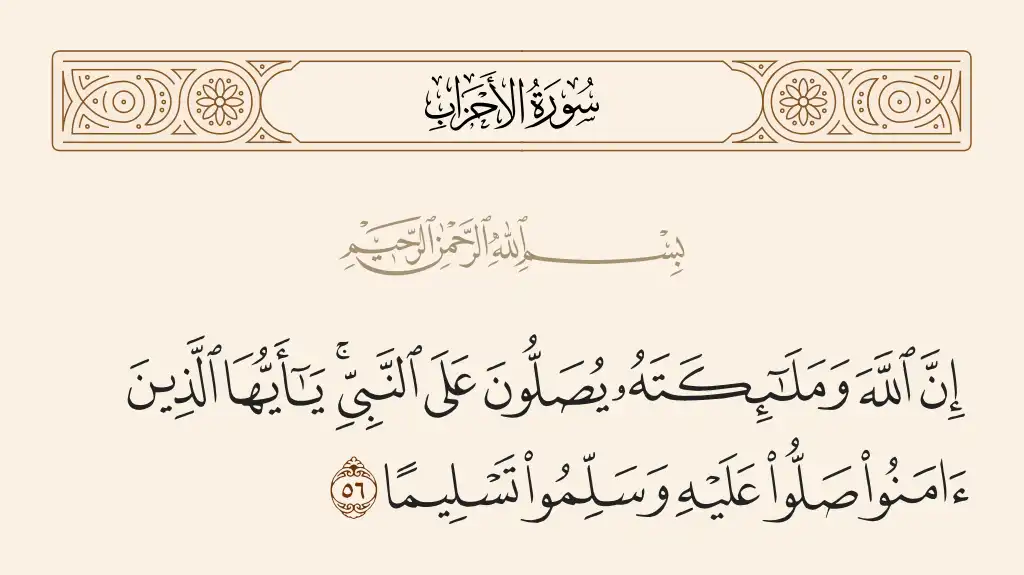
Benefits of Innallaha wa malaikatahu
Below are the tafsir, explaination and benefits of this beautiful verse taken from tafsir IBN Kathir.
1. The Command to say Salah upon the Prophet
Allah says:
إِنَّ اللَّهَ وَمَلَيِكَتَهُ يُصَلُّونَ عَلَى النَّبِيِّ يَا أَيُّهَا الَّذِينَ امَنُوا صَلُّوا عَلَيْهِ وَسَلِّمُوا تَسْلِيمًا
Advertisements
Meaning, Allah sends His Salah on the Prophet, and also His angels (do so). O you who believe! Send your Salah on him, and greet him with Taslim.
Al-Bukhari said that Abu Al-Aliyah said:
“Allah’s Salah is His praising him before the angels, and the Salah of the angels is their supplication.”
Ibn Abbas said: “They send blessings.”
Abu `Isa At-Tirmidhi said: “This was narrated from Sufyan Ath-Thawri and other scholars, who said:
`The Salah of the Lord is mercy, and the Salah of the angels is their seeking forgiveness.’
There are Mutawatir Hadiths narrated from the Messenger of Allah commanding us to send blessings on him and how we should say Salah upon him.

In his Tafsir of this Ayah, Al-Bukhari recorded that Kab bin Ujrah said,
“It was said, `O Messenger of Allah, with regard to sending Salam upon you, we know about this, but how about Salah!’
He said:
قُولُوا
اللَّهُمَّ صَلِّ عَلَى مُحَمَّدٍ وَعَلَى الِ مُحَمَّدٍ كَمَا صَلَّيْتَ عَلَى الِ إِبْرَاهِيمَ إِنَّكَ حَمِيدٌ مَجِيدٌ
اللَّهُمَّ بَارِكْ عَلَى مُحَمَّدٍ وَعَلَى الِ مُحَمَّدٍ كَمَا بَارَكْتَ عَلَى الِ إِبْرَاهِيمَ إِنَّكَ حَمِيدٌ مَجِيد
Say:
“O Allah, send Your Salah upon Muhammad and upon the family of Muhammad, as You sent Your Salah upon the family of Ibrahim, verily You are the Most Praiseworthy, Most Glorious.
O Allah, send Your blessings upon Muhammad and upon the family of Muhammad, as You sent Your blessings upon the family of Ibrahim, verily You are Most Praiseworthy, Most Glorious.””
Read more about salatul Ibrahimiyya.
2. Saying Salah upon the Prophet before the Supplication
Imam Ahmad, Abu Dawud and At-Tirmidhi reported the following Hadith and graded it Sahih;
An-Nasa’i, Ibn Khuzaymah and Ibn Hibban recorded in their Sahihs that Fadalah bin Ubayd, may Allah be pleased with him, said:
“The Messenger of Allah heard a man making supplication in his prayer when he had not praised Allah or said Salah upon the Prophet. The Messenger of Allah said: This man is rushing.
Then he called him over and said, to him or to someone else,
When any one of you supplicates, let him start by praising and glorifying Allah, may He be exalted, then let him send Salah upon the Prophet, and after that let him make supplication as he wishes.”
3. The Virtue of saying Salah upon the Prophet
Another Hadith At-Tirmidhi recorded that Ubayy bin Ka`b said:
“When two thirds of the night had passed, the Messenger of Allah would get up and say,
O people, remember Allah, remember Allah, the first blast of the Trumpet has come and will be followed by the second blast, death has come with all its horrors, death has come with all its horrors.”
Ubayy said, “I said, `O Messenger of Allah, I send a lot of Salah upon you, how much of my prayer should be Salah upon you!’
He said, (Whatever you want).
I said, `A quarter.’
He said, Whatever you want, but if you increase it, it will be better for you.
I said, `Half.’
He said, (Whatever you want, but if you increase it, it will be better for you.
I said, `Two thirds.’
He said, Whatever you want, but if you increase it, it will be better for you.
I said, `Should I make my whole prayer for you!’
He said, This would be sufficient to relieve your distress and earn you forgiveness of your sins.”
Then he said: “This is a Hasan Hadith.”
Another Hadith
Imam Ahmad recorded that Abu Talhah said that the Messenger of Allah came one day looking happy.
They said, “O Messenger of Allah, we see that you look happy.”
He said, The angel came to me and told me, “O Muhammad, would it not please you if your Lord, may He be glorified, says:
`No member of your Ummah sends Salah upon you but I send Salah upon him tenfold, and no member of your Ummah sends greetings of Salam upon you but I send greetings of Salam upon him tenfold.”‘
I said, “Of course.”
This was also recorded by An-Nasa’i.
Another Hadith
Muslim, Abu Dawud, At-Tirmidhi and An-Nasa’i recorded that Abu Hurayrah, may Allah be pleased with him, said:
“The Messenger of Allah said: Whoever sends one Salah upon me, Allah will send ten upon him.
At-Tirmidhi said:”This is a Sahih Hasan Hadith.
On the same topic, narrations come from Abdur-Rahman bin Awf,Amir bin Rabiah,Ammar, Abu Talhah, Anas and Ubayy bin Ka`b.”
Another Hadith
Imam Ahmad recorded from Abu Hurayrah: the Prophet said:
Send Salah upon me, for this is Zakah for you, and ask Allah to grant me Al-Wasilah, for it is a position in the highest part of Paradise which only one man will attain, and I hope that I will be the one.
This was recorded only by Ahmad.
Another Hadith
Imam Ahmad recorded that Al-Husayn bin Ali said that the Messenger of Allah said:
The miser is the one in whose presence I am mentioned, then he does not send Salah upon me.
Abu Sa`id said: and he does not send Salah upon me.
This was also recorded by At-Tirmidhi, who then said:”This Hadith is Hasan Gharib, Sahih.”
Another Hadith
At-Tirmidhi recorded that Abu Hurayrah said:
“The Messenger of Allah said:
May he be humiliated, the man in whose presence I am mentioned and he does not send Salah upon me;
may he be humiliated, the man who sees the month of Ramadan come and go, and he is not forgiven;
may he be humiliated, the man whose parents live to old age and they do not cause him to be granted admittance to Paradise.”
Then he (At-Tirmidhi) said:”Hasan Gharib.”

Occasions for saying Salah upon Him
It is reported that we should send blessings upon him on many occasions, such as following the call to prayer, as in the Hadith recorded by Imam Ahmad from Abdullah bin Amr bin Al-As, who said that he heard the Messenger of Allah say:
When you hear the Mu’adhdhin, repeat what he says, then send Salah upon me, for whoever sends Salah upon me, Allah will send Salah upon him tenfold.
Then ask Allah to grant me Al-Wasilah, which is a status in Paradise to which only one of the servants of Allah will be entitled, and I hope that I will be the one.
Whoever asks Allah for Al-Wasilah for me, it will be permitted for me to intercede for him.
Read more on Dua for adhan.
This was recorded by Muslim, Abu Dawud, At-Tirmidhi and An-Nasa’i.
Other occasions when we should send Salah upon the Prophet include when entering or exiting the Masjid, because of the Hadith recorded by Imam Ahmad from Fatima, the daughter of the Messenger of Allah who said:
“When the Messenger of Allah entered the Masjid, he would send Salah and Salam upon Muhammad, and say,
اللْهُمَّ اغْفِرْ لِي ذُنُوبِي وَافْتَحْ لِي أَبْوَابَ رَحْمَتِك
O Allah, forgive me my sins and open for me the gates of Your mercy.
When he exited, he would send Salah and Salam upon Muhammad, and say,
اللْهُمَّ اغْفِرْ لِي ذُنُوبِي وَافْتَحْ لِي أَبْوَابَ فَضْلِك
O Allah, forgive me my sins and open for me the gates of Your bounty.”
We should also send Salah upon him during the Funeral prayer.
The Sunnah is to recite Surah Al-Fatihah following the first Takbir, to send Salah upon the Prophet during the second Takbir, to make supplication for the deceased during the third Takbir, and in the fourth Takbir to say,
“O Allah, do not deprive us of his reward, and do not test us after him.”
It is recommended to conclude supplications with Salah upon the Prophet.
At-Tirmidhi recorded that Umar bin Al-Khattab said:
“A supplication remains suspended between heaven and earth and does not ascend any further until you send Salah upon your Prophet.”
It was also recorded by Razin bin Mu`awiyah in his book, where he also attributed it to the Prophet reporting that he said:
A supplication remains suspended between heaven and earth and does not ascend any further until a person sends Salah on me.
Do not treat me like a spare water container, send Salah upon me at the beginning of your supplication, at the end and in the middle.
Sending Salah upon the Prophet is even more strongly encouraged in the Qunut supplication.
Ahmad, the Sunan compilers, Ibn Khuzaymah, Ibn Hibban and Al-Hakim recorded that Al-Hasan bin Ali, may Allah be pleased with him, said:
“The Messenger of Allah taught me some words to say during Al-Witr:
“O Allah,
- guide me along with those whom You have guided,
- grant me health along with those to whom You have granted health,
- be an ally to me along with those to whom You are an ally, and bless me for that which You have bestowed.
- Protect me from the evil You have decreed, for verily You decree and none can decree over You.
- Verily, he whom You show allegiance to is never abased and he whom You take as an enemy is never honored and mighty,
O our Lord, blessed and Exalted are You.””
In his Sunan, An-Nasa’i has the addition,
وَصَلَّى اللهُ عَلَى مُحَمَّد
“and may Allah bless Muhammad.” at the end of this Qunut.
It is also recommended to say plenty of Salah upon him on Friday and on the eve of Friday. Imam Ahmad recorded that Aws bin Aws Ath-Thaqafi, may Allah be pleased with him, said:
“The Messenger of Allah said:
One of the best of your days is Friday; on this day Adam was created and died, on this day the Trumpet (Sur) will be blown and all will have swoon away.
So on this day send plenty of Salah upon me, for your Salah will be presented to me.
They said, `O Messenger of Allah, how will they be shown to you after your body has dispersed into the earth.’
He said, Allah has forbidden the earth to consume the bodies of the Prophets.”

Advertisements

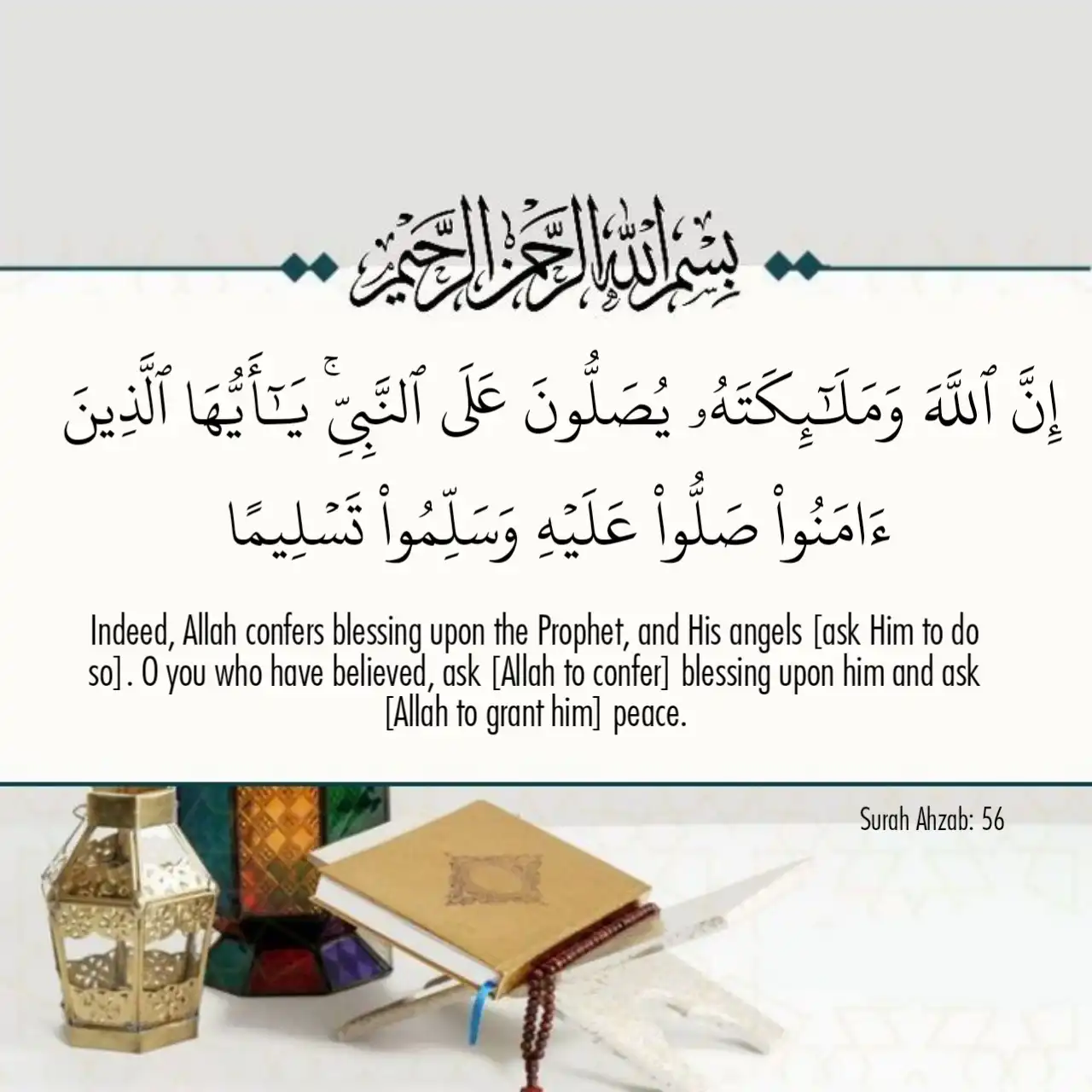
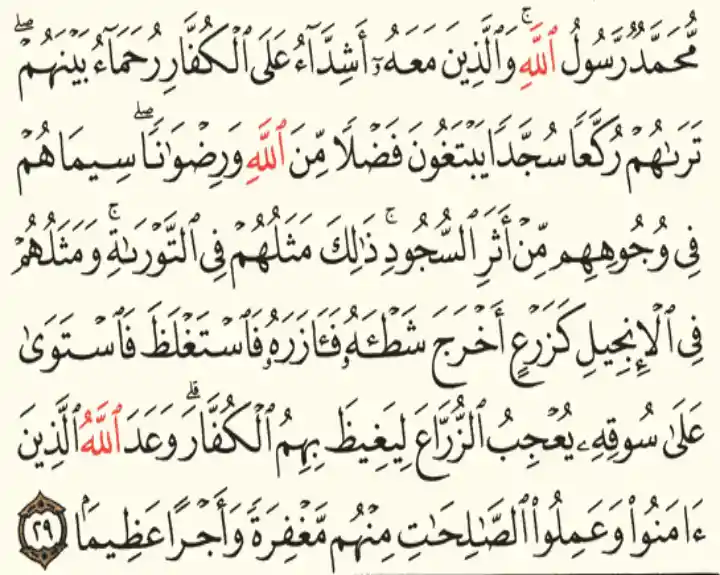


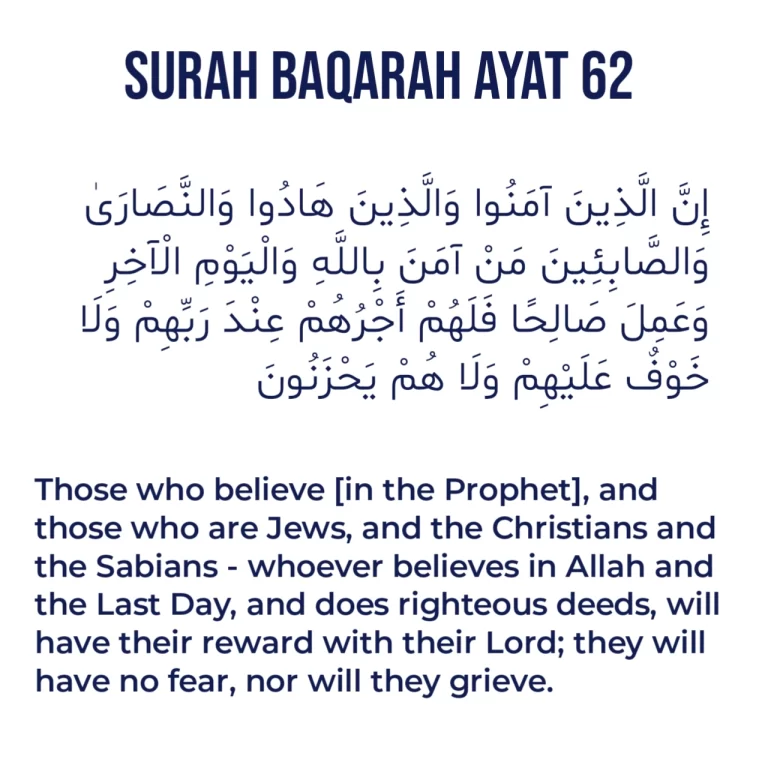
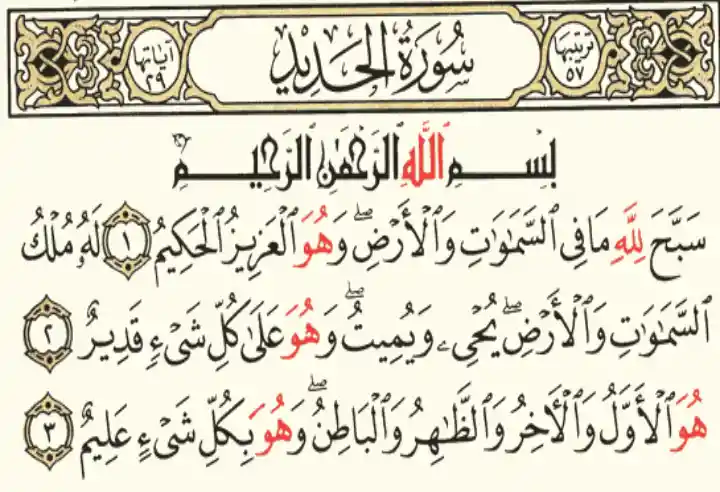
One Comment
Comments are closed.